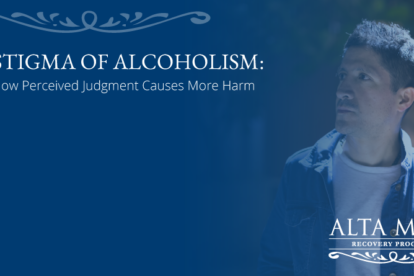Suffering From Multiple Addictions

Multiple addictions can often seem impossible to cure. But the truth is if that one addiction can be managed, they all can, since they stem from the same unique reasons. Identifying different addictions and learning about the underlying causes can be helpful in recovery.
“As my addictions began to pile up, compounding one another, one bad idea leading to another and another, all helpless, I felt worse and worse about myself. If I were a drug addict, that’s one thing. But I couldn’t stop gambling, and I couldn’t stop trying to sleep with everything that walked.”
Gerry’s story was familiar: a swirling cocktail of multiple addictions, each one building on the other. Almost as impactful as the physical or financial aspect, though, was the emotional one. Like so many others, Gerry felt like a failure, like each individual addiction was its own separate disappointment and source of judgment and contempt.
Gerry wasn’t alone. Multiple addictions, whether they are to alcohol or drugs or sex or gambling or nearly anything else, are often viewed in a vacuum. But the truth is that they are all based around the same chemical and biological needs, and are all coming from the same basic place.
Gerry didn’t have multiple separate addictions; Gerry had a substance abuse disorder that expressed itself in multiple forms.
That’s why we have to look at multiple addictions as part of a whole, treating each of them in the context of the presence of the others. Gerry was able to go into comprehensive treatment, which looked at every addiction as one part of the puzzle that made up Gerry’s unique circumstances and history. There are different treatments for different addictions, which is why multiple addictions require a comprehensive program that can address them all, both individually and as a whole.
Understanding the Roots of Multiple Addiction
We’ve only recently begun to learn that addiction is a neurochemical reaction to stimulus. The brain releases rewards for certain behaviors, then starts to demand higher levels of those behaviors. And that’s what addiction really is: a lack of control. It can be triggered by certain behaviors, but they are often behaviors that many people engage in. Most people enjoy having a drink, and many take recreational drugs.
So why do some people get addicted? It’s complicated, but there are root causes of addiction and some populations that are more susceptible than others. Some of these causes include:
- Genetics and family history. Having parents, siblings, or other relatives who suffer from addiction is one of the surest warning signs of addiction for a person. It is estimated that genetics are responsible for nearly 50% of the development of drug addiction. This isn’t, of course, predetermined. But it is a warning sign for people worried about addictive tendencies.
- Early age of initial exposure. People who start drinking or doing drugs at an early age are more susceptible to developing addictions. The earlier, the more likely.
- Mental illness. Mental illness can lead to frightening, disorienting, and even shattering emotions; there is little surprise that many people suffering from them turn to drugs or alcohol in an attempt to cope. Indeed, nearly 40% of people with addiction have a co-occuring mental disorder.
- Family turmoil. Disorder in a family life can lead people into dangerous situations, oftentimes ending up trying to self-medicate to fill a void. People with parental troubles often also turn to peers, and peer pressure is another potential avenue for addiction.
Of course, we see how many of these factors can be intertwined. Parents who have addicts often create turbulent homes for their children, who might already be genetically inclined toward addiction, and who can end up exposed to addictive substances at an early age. Just as the causes can be intertwined, so can the symptoms. That’s how multiple addictions often occur.
How Multiple Addictions Relate to Each Other
Gerry’s story here is instructive. Their home life wasn’t very good, and they were often out on the street, wandering around, trying to fill time by killing it. That’s when they started drinking. There were other kids who had booze, slightly older, and both intrigued by and mocking toward Gerry’s identity, which was gender-fluid, although they didn’t know it at the time (or, rather, didn’t know what to call it or how to respond to it). Gerry got hard into drinking to fit in, to make people happy, to find a place. It made him feel good, if only temporarily. His highs were matched by lows though, which soon needed new highs. Drugs came roaring into the picture—trying one led to another, and soon, another.
The drinking and the drugs were all were different parts of the same picture. All fed each other, propped each other up, and were in many ways necessitated by each other. They were all the fuel, and they were all the fire. As Gerry said, “I was a snake eating my own tail. Every addiction supported the next one.”
It’s not an uncommon story. Gerry had many of the typical root causes of addictive behavior. But each new habit wasn’t really a new issue. It was the same issue, with different outlets that were all part of the same addiction.
Gerry needed help. Luckily, they got it.
Begin Your Recovery Journey Today
866-922-1350How Comprehensive Treatment Can Help Multiple Addictions
Gerry had been to meetings for alcoholics. They had been to meetings for narcotics. And they liked the meetings; the rooms were full of good people who meant well and were genuinely helpful. But the meetings weren’t enough. Each one addressed a specific addiction, but not a single one addressed the larger picture.
That’s what long-term comprehensive care can do. If you have multiple addictions like Gerry, you want a team of compassionate medical professionals who can take care of you, and a facility with:
- The vision to treat each addiction as part of a whole
- The comprehensive expertise to treat each addiction differently
The paradox here, of course, is that different forms of addiction have different ways to be treated. They are similar, but having specified experts is important. However, what really matters with multiple addictions is to have a team who knows your whole case, all your needs, in an integrated co-occurring addiction treatment program.
Gerry got help. Addiction never goes away, but Gerry was given the tools to deal with it, and found the strength to get their life back on track. You or your loved one can do the same. Multiple addictions do not make you a failure. But you can succeed in getting them under control and taking your life back into your own hands.






